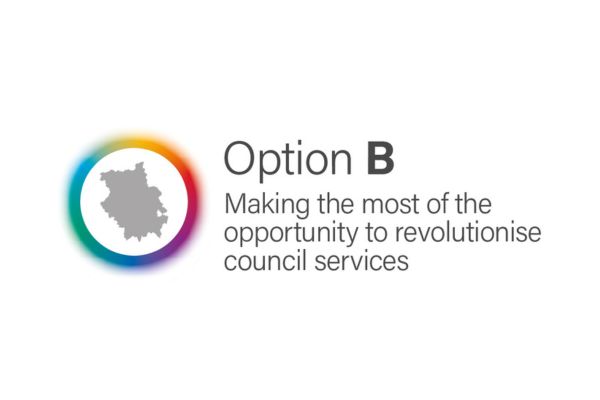A street collection licence covers a collection of money or sale of articles for the benefit of charitable purposes, on the streets of Cambridge.
We issue licences for street collections on Wednesdays, Fridays and Saturdays.
If the date you want has already been reserved by another collector, we will offer you an alternative.
The city centre is divided into two zones, east and west, so up to two collections can take place at any one time. Our map [PDF, 3MB] shows the two areas.
We allow Direct Debit collections on Tuesdays and Thursdays in designated pitches. The Institute of Fundraising organises the calendar of collections – contact them to find out more.
To check for availability or to see who's collecting in the city, refer to our calendar.
Apply
Please remember to:
- apply no later than one month before the proposed date for collection - we might reduce the period of one month if satisfied that there are special reasons for doing so
- include your letter of permission when you submit your application form if your organisation has permission to collect on private property, eg the Grafton Centre, Lion Yard or Grand Arcade.
Rules
The general rules about performing street collections are:
- collectors without a licence are committing a criminal offence
- no collection should cause annoyance to any person.
Location of collection
Rules about street collections and where they can occur are:
- no collection can be made in any street or public place within Cambridge unless the promoter - the person who causes others to take part as collectors - has obtained a licence from us
- no collection shall be made except on the day and between the hours stated on the licence
- we may, in granting a licence, limit the collection to streets or public places such as we see fit
- no collection shall be made in any part of the carriageway or any street which has a footway. However, we may allow a collection to take place on a carriageway where it has been authorised in connection with a procession.
Rules about the location of a collection do not apply:
- in respect of a collection taken at a meeting in the open air
- to the selling of articles in any street or public place where the articles are sold in the ordinary course of trade.
Collectors
Rules about street collections in terms of the collectors are:
- no payment shall be made to any collector
- all promoters, collectors and people connected with a collection must be over the age of sixteen
- no person may assist or take part in any collection without the written authority of a promoter.
While collecting:
- any person authorised by the promoter must immediately produce the written authority for inspection if requested to do so by an authorised officer of the council or any constable
- a collector shall remain stationary
- a collector or two collections together must be 25 metres apart unless we have waived the requirements of this regulation because a collection has been authorised in connection with a procession
- every collector shall carry a collecting box
- all money received by a collector from contributions must immediately be placed in a collecting box.
Collecting boxes
Rules about street collections regarding collecting boxes are:
- a collector shall not carry or use any collecting box, receptacle or tray which does not display prominently the name of the charity or fund which is to benefit and the number of the box
- all collecting boxes must be numbered consecutively and must be securely closed and sealed to prevent them being opened or tampered with without the seals being broken
- every collector shall deliver, unopened, all collecting boxes in his possession to a promoter.
After the collection
All collection boxes must be opened in the presence of a promoter and another responsible person. Where a collecting box is delivered, unopened, to a bank, it may be opened by an official of the bank.
As soon as a collecting box has been opened, the person opening it shall count the contents and shall enter the amount with the number of the collecting box on a list which shall be certified by that person.
No payment shall be made out of the proceeds of any collection, either directly or indirectly, to any other person connected with the collection.
Post-collection requirements
Within one month after the date of any collection the person to whom the licence has been granted (the promoter) must forward to us:
- a statement of returns as provided by us, showing the amount received and the expenses and payments incurred in connection with the collection - this form must be certified by the promoter and a qualified accountant
- a list of the collectors
- a list of the amounts contained in each collecting box.
- future permits will not be issued unless we receive a completed statement of returns
The promoter must be able to provide evidence to satisfy us as to the proper application of the proceeds of the collection.
If satisfied there are special reasons for so doing, we can extend the period of one month.
Published statement
The promoter must also, within one month and after a qualified accountant has certified the statement of accounts, publish in such newspapers as we may direct, a statement showing the:
- name of the person to whom the licence has been granted
- areas to which the licence relates
- name of the charity or fund to benefit
- date of the collection
- amount collected
- amount of expenses and payments incurred in connection with the collection.
Some requirements may be waived
If the total proceeds from a collection do not exceed £100 we may waive the requirement above that the statement of accounts must be certified by a qualified accountant.
Instead it will be required that a statement of accounts shall be accompanied by a certificate signed by a reputable and responsible person not connected in any way with the collection or its proceeds.
Having examined the statement of accounts, we may still require that the statement also be certified by a qualified accountant.



